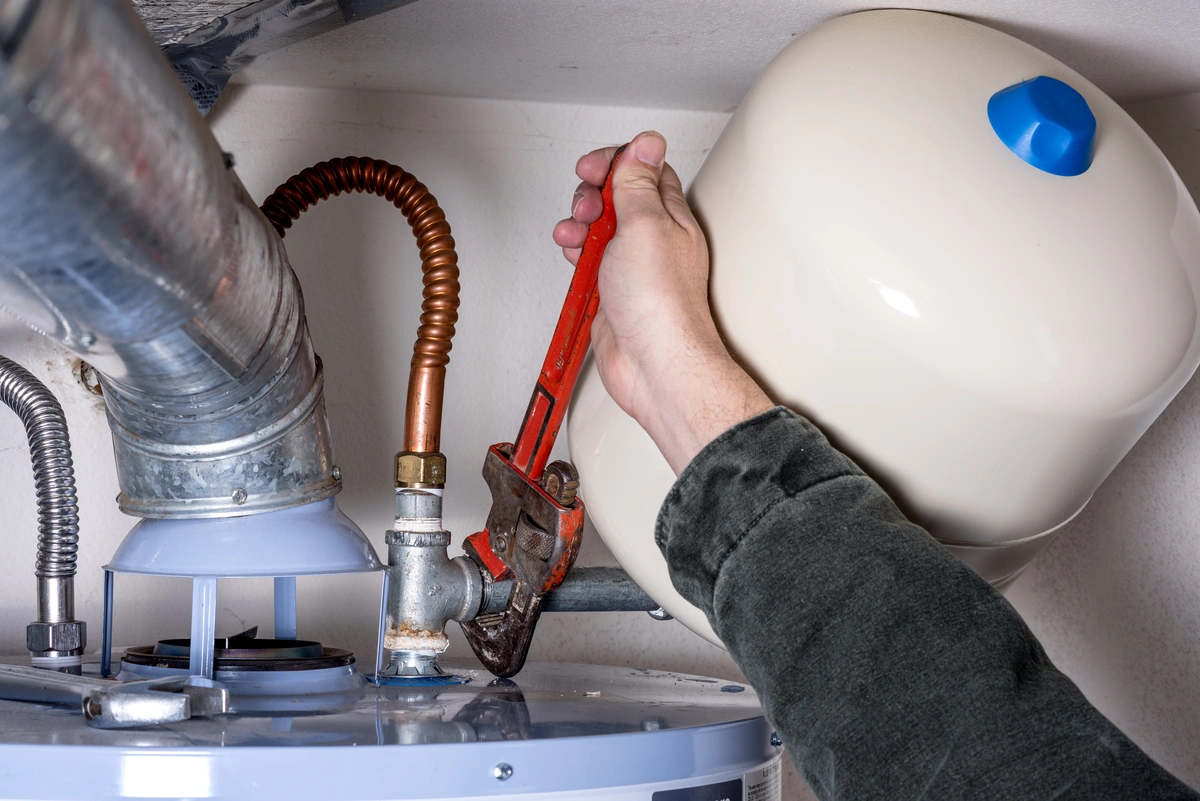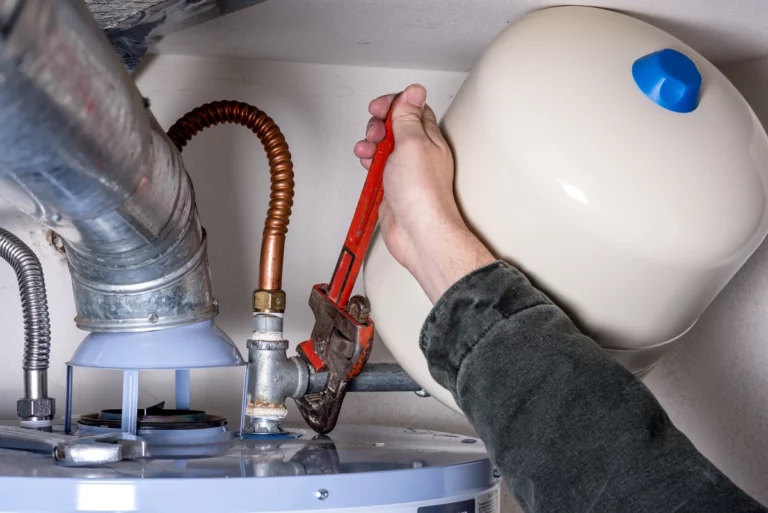Water heaters are essential appliances that provide hot water for our daily activities. However, they have a limited lifespan and will eventually require replacement.
Knowing how long your water heater is expected to last can help you plan for repairs or a replacement, avoid unexpected breakdowns, and save money in the long run.
In this article, we’ll explore the factors that determine the lifespan of water heaters, common signs of a failing unit, and tips for extending the lifespan of your water heater.
Types of Water Heaters
There are several types of water heaters available today. They include:
Tank-Type Water Heaters
Tank water heaters are the most common. They store hot water in a tank and maintain a constant temperature until the hot water is needed. When hot water is used, the water heater tank refills and heats the water to the set temperature. A tankless water heater is fueled by electricity, natural gas, propane, or oil.
Tankless Water Heaters
Tankless water heaters heat water when it is needed. They do not store hot water in a tank. When hot water is needed, cold water flows through an electric heater, which quickly heats the water to the desired temperature. They are fueled by electricity, natural gas, or propane.
Heat Pump Water Heaters
Heat pump water heaters use a heat pump to extract heat from the air and transfer it to the water. These types of water heaters are more efficient water heaters because they don’t use electricity to directly heat the water.
Solar Water Heaters
Solar water heaters use energy from the sun to heat the water. They use solar collectors to absorb heat from the sun and transfer it to a storage tank, where the water is heated. This type of water heater can be more expensive to install than gas water heaters. However, they can be very cost-effective in the long run because it uses free energy from the sun.
Hybrid Water Heaters
Hybrid water heaters combine the technology of a tank-type water heater with a heat pump. They use a heat pump to extract heat from the air for heating water but also have a small tank to store hot water. This type of water heater is very energy-efficient but can be more expensive to install.
So, How Long Does A Water Heater Last?
The average lifespan of a water heater is around 8 to 12 years, depending on the type, brand, and maintenance. Tank-type water heaters usually last between 8 to 10 years, while tankless water heaters can last up to 20 years with proper maintenance.
Factors That Determine Your Water Heater Lifespan
Several factors can determine the lifespan of a water heater, some of which include:
- Installation quality: A correctly installed water heater will last longer than one that was installed incorrectly.
- Water quality: Hard water causes a buildup of mineral deposits in the tank, leading to corrosion and causing leaks.
- Frequency of use: Units that are used frequently may develop leaks or other issues more quickly than those that are used less frequently.
- Maintenance: Neglecting regular maintenance, such as flushing the tank, checking the anode rod, and inspecting the unit for leaks, can lead to premature failure.
- Water Heater Type: The type and brand of hot water heater you have can also affect its lifespan. Tankless water heaters, for example, typically last longer than tank-type hot water heaters.
- Environmental factors: The environment in which a water heater is installed can also impact its lifespan. For example, if the unit is installed in a location with high humidity, it may be more prone to rust and corrosion.
Common Signs of A Failing Water Heater Unit
A failing water heater can cause a range of issues, some of which include:
- Rusty water: If you notice rusty water coming out of your hot water taps, it could be a sign of corrosion inside the water heater. This could be due to sediment buildup or age.
- Strange noises: Unusual popping, banging, or cracking noises coming from the hot water heater can indicate sediment buildup, overheating, or other problems.
- Leaks: Water pooling around the base of the water heater can signal a leaking water heater. Water heater leaking can cause water damage to your home.
- Inconsistent water temperature: If your hot water isn’t as hot as it used to be or fluctuates between hot and cold, it may indicate a problem with the heating element or thermostat.
- Age: If your water heater is approaching or exceeding its expected lifespan, it’s a good idea to start thinking about a replacement.
- Higher utility bills: A failing water heater may require more energy to operate, leading to a spike in your utility bill.
If you notice any of these signs, it’s time to call professional plumbers as it may be time to replace your old water heater or do some water heater repair. Delaying repairs or replacement can lead to more severe issues and higher costs later.
Tips For Extending The Lifespan of Your Water Heater
Here are some tips for extending the service life of your hot water heater to avoid purchasing a new hot water heater too soon:
Schedule Regular Maintenance
Proper maintenance is essential to increasing the life expectancy of your hot water heater. This includes flushing the tank to remove the sediment buildup, checking the anode rod, and inspecting the unit for leaks. A professional plumber can perform these tasks and identify potential issues before they become significant problems.
Adjust The Thermostat
Lowering the temperature on your water heater can help reduce wear and tear on the unit. Additionally, avoiding hot showers and lowering temperatures can help reduce the risk of scalding and save energy, extending the life of your unit.
Insulate the Tank
Insulating your water heater tank can reduce heat loss and save energy. It can extend the life of your unit by reducing the amount of work it has to do to keep the water hot.
Use a Water Softener
Hard water can cause mineral buildup in your water heater tank, reducing its efficiency and life expectancy. Installing a water softener can remove mineral buildup and extend the life of your unit.
Replace the Anode Rod
The anode rod helps prevent rust and corrosion inside the tank. Over time it can become depleted and ineffective. Replace the anode rod every 3 to 5 years to extend the life of your hot water heater.
Consider a Pressure Regulator
High water pressure can cause stress on your hot water heater, leading to leaks or other problems. Installing a pressure regulator can help reduce stress on the unit and extend its lifespan.
Final Word: How Long Do Water Heaters Last?
Water heaters last an average of 8 to 12 years, depending on factors like the type, brand, installation, and maintenance. Pay attention to factors such as water quality, usage, and maintenance to extend the lifespan of your water heater. Schedule regular maintenance, installing a water softener, adjusting the thermostat, and insulating the tank to ensure you don’t have to prematurely replace your water heater.





